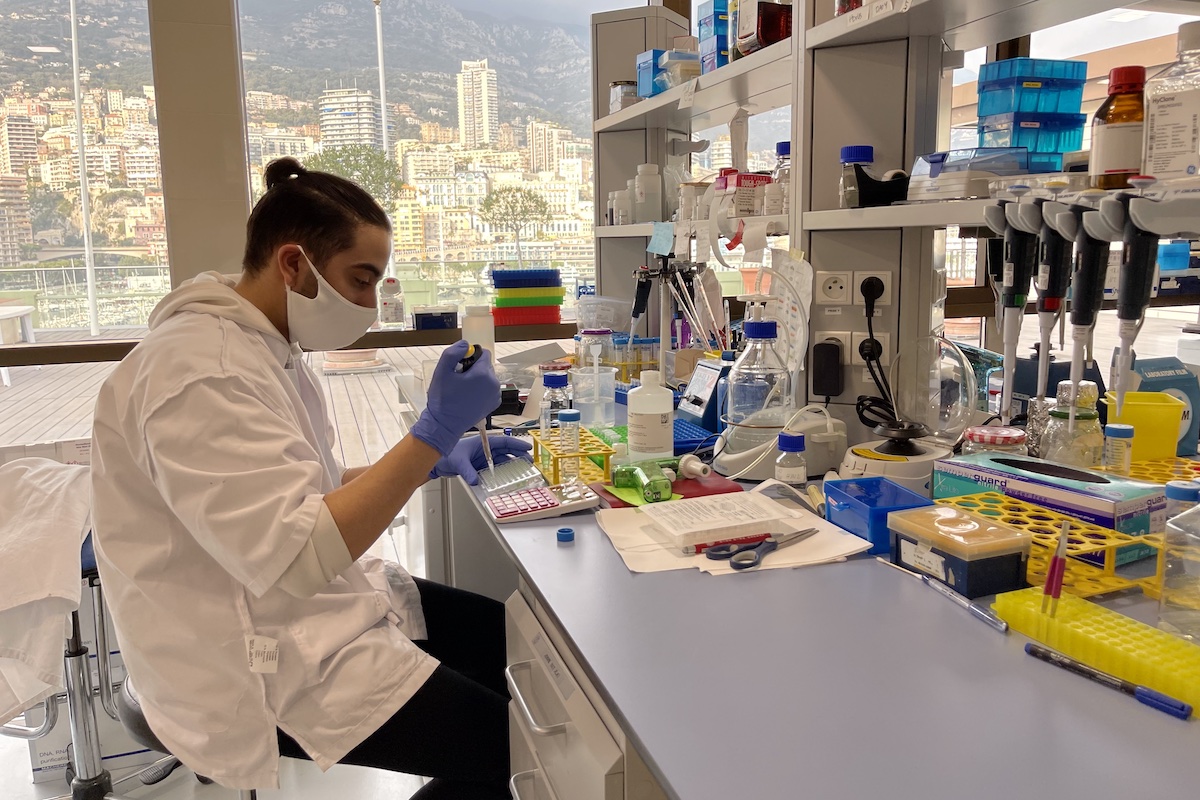A team at the Scientific Centre of Monaco is behind exciting new research that shows brain cancer stem cells can be reprogrammed to better respond to treatment. It could transform therapies for not only children suffering from the disease, but also a range of cancers in adults.
The Paediatric Oncology and Neurogenesis team at the Scientific Centre of Monaco, led by Dr Vincent Picco, has been studying cellular reprogramming to counter medulloblastomas, or brain tumours, in children.
The work by Dr Doria Filipponi has just been published in the scientific journal Cancers, and could pave the way for the development of a new strategy to thwart the role of cancer stem cells (CSCs) involved in the development of brain cancer, their ability to resist treatment by chemotherapy and radiotherapy, and their involvement in the risk of recurrence and metastatic development.
According to the research, CSCs show all the characteristics of embryonic nerve stem cells that support brain development. Their capacity for self-renewal and resistance to therapies are central in the phenomena of relapses, which are fatal in almost all cases. The objective, therefore, is to reprogram these tumour cells to make them more vulnerable to treatment and thus reduce the risk of recurrence of the disease.
“The principle of cellular reprogramming is a very innovative therapeutic approach, so far never implemented in the treatment of paediatric brain cancers,” explains Dr Doria Filipponi. “It consists of characterising the CSCs from the analysis of very fine genetics to differentiate them from embryonic nerve stem cells and then targeting them with specific, appropriate actions.”
Medulloblastomas are rapidly growing brain tumours that mainly effect children aged five to nine. They are responsible for around 20% of paediatric brain and spinal cord cancers. While the treatment is often effective – the average five-year survival rate is 80% – it also has significant, permanent consequences on the health of the child.
That’s why the CSM team is looking to find ways of developing new targeted therapeutic pathways.
This new principle treatment that they propose opens up prospects not only in the fight against medulloblastomas and paediatric brain cancers, but also for possible applications to other types of cancer in both children and adults.
For Dr. Vincent Picco, “…this innovation in diagnosis and treatment opens up very new prospects for treatment by combining genomic analysis and identification of tumour cell informatics and biological research. This procedure can be applied to other forms of cancer. For paediatric brain cancers, validation through preclinical analysis of our results will make it possible to delimit the conditions under which this approach could be implemented in the management strategy for these cancers.”
Dr. Doria Filipponi was the winner of the 2021 Best Researcher Award given by The International Research Awards on Oncology and Cancer Research, an award that honours and encourages researchers and their research organisations for their significant contributions to the advancement of research in their area of expertise. In recent years, the work of Dr. Doria Filipponi led to a paradigm shift in the field of resistance therapy and tumour relapse, and made it possible to offer totally innovative therapies in patient care.
Dr. Filipponi’s study received financial support from the Flavien Foundation, which supports several research programs on paediatric cancers at the Scientific Centre of Monaco, for more than six years.
SEE ALSO:
CSM researcher wins Best Researcher Award
Can coral help solve the mystery of childhood cancer?
Photo of the CSM lab by Monaco Life
